Are you considering adding a Yorkshire Terrier to your family as a pet? If so, you’re in for a treat! Yorkshire Terriers, or “Yorkies” as they are affectionately called, are a popular breed of toy dog known for their small size, lively personalities, and adorable appearance. These dogs are ideal for those who live in small apartments or have limited space, as they do not require much room to run around. However, despite their size, Yorkies are full of energy and are always ready to play and explore. In this article, we will delve into the Yorkshire Terrier breed, their characteristics, and what you can expect when bringing one into your home.
Breed Category: Toy
Country of Origin: England
Average Size:22-23 cm
Average Weight:2-3 kg
Average Life Span: 12-15 years
Grooming Requirements: High
Exercise Requirements:Moderate
History and Origin
The Yorkshire Terrier, also known as the Yorkie, is a small breed of dog that originated in Yorkshire, England during the 19th century. The breed was developed by working-class people who needed a small dog to catch rats in clothing mills and mines. The Yorkie was also used for hunting small game such as rabbits and foxes.
The exact origin of the Yorkshire Terrier is unknown, but it is believed to be a cross between several different breeds including the Skye Terrier, the Maltese, and the Dandie Dinmont Terrier. The breed was first shown in England in 1861 and was recognized by the Kennel Club in 1874.
During the Victorian era, the Yorkie became a popular pet among the upper class. The breed was often seen accompanying ladies in their carriages and was even used as a fashion accessory. The Yorkie’s popularity continued to grow throughout the 20th century and it remains a beloved breed today.
In the early 1900s, the breed was brought to the United States and quickly gained popularity. The first Yorkie was registered with the American Kennel Club in 1885. Today, the Yorkie is one of the most popular breeds in the United States and is often seen in movies and television shows.
The Yorkshire Terrier is a small dog, weighing between 4 and 7 pounds. It has a long, silky coat that is typically blue and tan in color. The breed is known for its intelligence, loyalty, and affectionate nature. Yorkies are also known for their high energy levels and can be quite active.
In addition to being a popular pet, the Yorkie has also been used in various roles such as therapy dogs and search and rescue dogs. The breed’s small size and intelligence make it well-suited for these types of jobs.
Overall, the Yorkshire Terrier has a rich history and has become a beloved breed around the world. Its small size, intelligence, and affectionate nature make it a popular choice for families and individuals alike. Whether as a working dog or a companion, the Yorkie has proven to be a loyal and devoted friend to many.
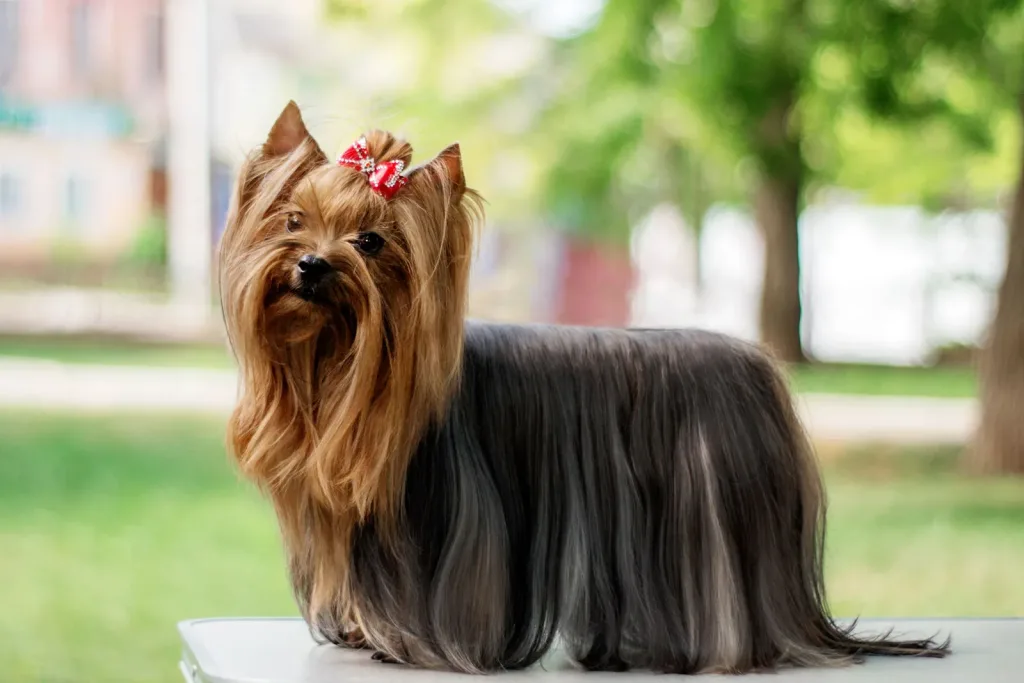
Size and Breed Category
The Yorkshire Terrier is a small breed of dog that originated in Yorkshire, England during the 19th century. They are classified as a toy breed, with an average weight of 3.2 kg and a height of 22 cm at the shoulder. Their coat is long, silky, and typically blue and tan in color. They have a small, triangular-shaped head with erect ears and a short muzzle. The breed is known for its lively and affectionate personality, making them a popular choice for families and individuals alike.
In terms of breed category, the Yorkshire Terrier is classified as a companion dog. They were originally bred to catch rats in textile mills and mines, but have since become a beloved household pet. Due to their small size and low exercise requirements, they are well-suited for apartment living and do not require a large amount of space to thrive. However, they do require regular grooming to maintain their long, flowing coat. Overall, the Yorkshire Terrier is a charming and loyal companion that has captured the hearts of many dog lovers around the world.
Fur Length and Colour
The fur of a Yorkshire Terrier is one of its most distinctive features. The fur is long and silky, with a texture that is soft to the touch. The fur is typically parted down the middle of the back, with the hair on either side falling evenly to the ground. The fur on the head is also long and silky, often falling over the eyes and creating a cute and endearing look. The fur on the legs is shorter, but still silky and soft. The fur of a Yorkshire Terrier can come in a range of colours, including black, tan, and blue. The most common colour is a combination of black and tan, with the black fur being the dominant colour. The fur is often shiny and lustrous, giving the dog a sleek and elegant appearance.
The length of the fur on a Yorkshire Terrier can vary depending on the individual dog. Some dogs have longer fur than others, with the fur on some dogs reaching all the way to the ground. The fur is typically longer on the body than on the legs, with the fur on the legs being shorter and more manageable. The fur on the tail is also long and silky, often curling up over the back. The colour of the fur can also vary, with some dogs having a lighter or darker shade of black or tan. Some dogs may also have a blue or silver colour to their fur, which is less common but still seen in the breed. Overall, the fur of a Yorkshire Terrier is one of its most defining features, giving the dog a unique and charming appearance.
Termperament and Trainability
Yorkshire Terriers are known for their lively and energetic temperament. They are highly active and love to play, making them great companions for families with children. However, they can also be quite stubborn and independent, which can make training a challenge. It is important to establish clear boundaries and consistent training from a young age to ensure that they understand their place in the family hierarchy. With patience and persistence, Yorkshire Terriers can be trained to perform a variety of tricks and commands, but it may take longer than with other breeds.
Despite their small size, Yorkshire Terriers have a strong and determined personality. They are quick learners and respond well to positive reinforcement, such as treats and praise. However, they can also be sensitive to criticism and may become defensive if they feel threatened or intimidated. It is important to use gentle and patient training methods to build trust and confidence with these dogs. Yorkshire Terriers are also known for their high energy levels, which can make them difficult to train if they are not given enough exercise and mental stimulation. Regular walks and playtime are essential for keeping them happy and healthy.
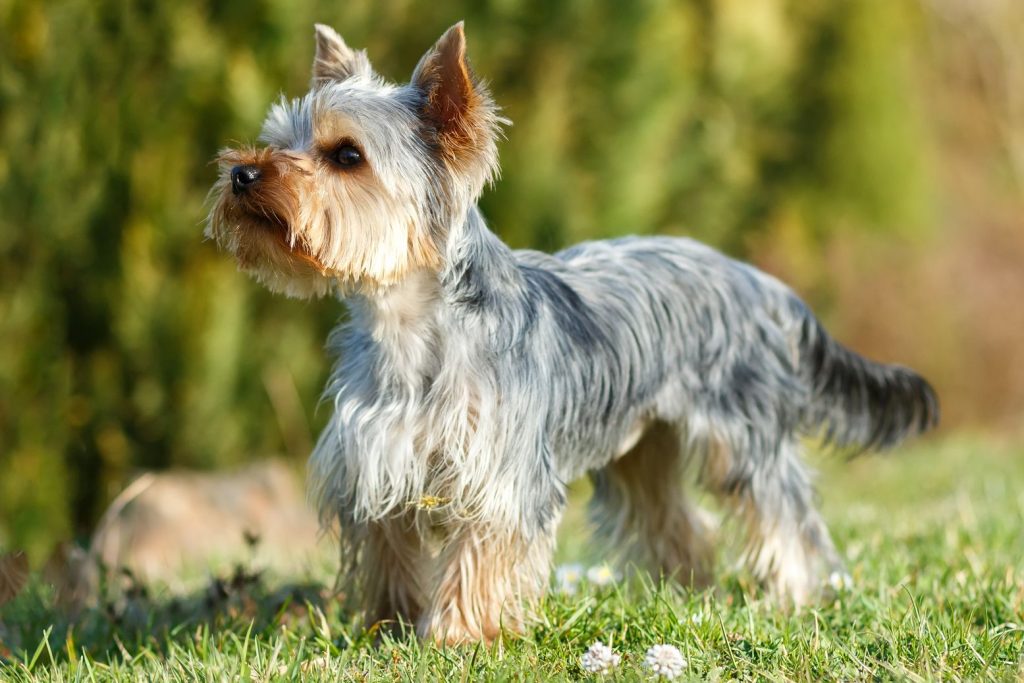
Known Health Conditions
Yorkshire Terriers are prone to a number of health conditions, including dental problems, hypoglycemia, and patellar luxation. Dental problems are common in Yorkshire Terriers due to their small mouths and crowded teeth. This can lead to tooth decay, gum disease, and even tooth loss. Regular dental check-ups and cleanings are important to prevent these issues. Hypoglycemia, or low blood sugar, is also a concern for Yorkshire Terriers. This can be caused by stress, poor nutrition, or an underlying health condition. Symptoms include lethargy, weakness, and seizures. Owners should monitor their dog’s eating habits and seek veterinary care if they suspect hypoglycemia. Patellar luxation, or a dislocated kneecap, is another health issue that affects Yorkshire Terriers. This can cause pain, lameness, and arthritis. Surgery may be necessary to correct the problem.
Another health condition that Yorkshire Terriers are prone to is tracheal collapse. This occurs when the cartilage in the trachea weakens, causing the airway to narrow and making it difficult for the dog to breathe. Symptoms include coughing, wheezing, and exercise intolerance. Treatment may include medication, weight management, and surgery in severe cases. Additionally, Yorkshire Terriers are at risk for liver shunts, which occur when blood flow bypasses the liver, leading to a buildup of toxins in the bloodstream. Symptoms include vomiting, diarrhea, and lethargy. Treatment may involve surgery to correct the shunt. Owners should be aware of these potential health issues and work closely with their veterinarian to ensure their Yorkshire Terrier receives proper care and treatment.
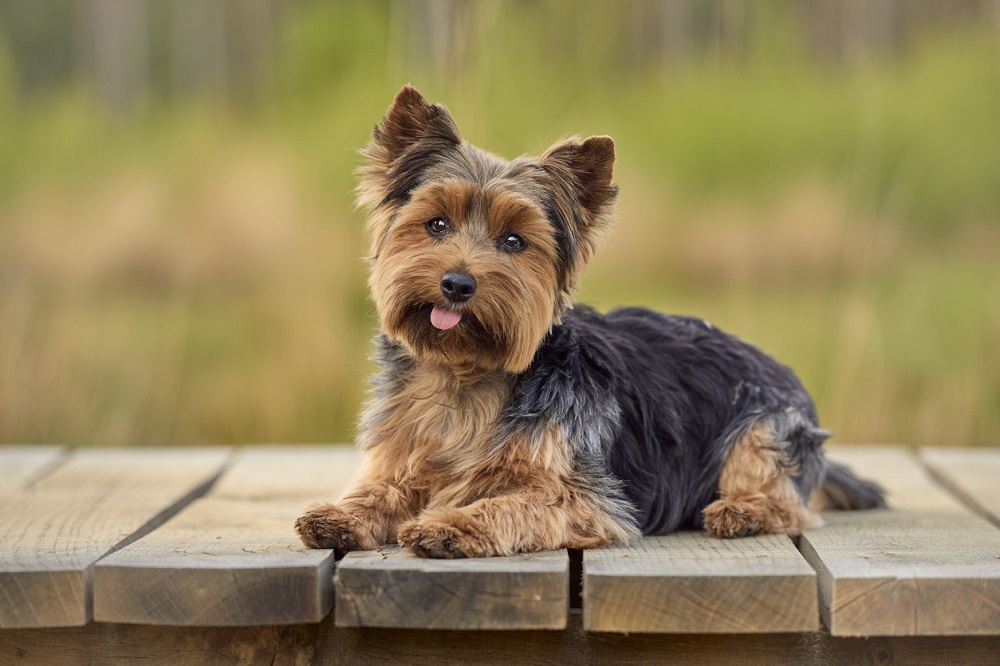
Openness to Strangers
Yorkshire Terriers are known for their friendly and outgoing nature towards strangers. They are a breed that is always eager to meet new people and make new friends. When encountering strangers, Yorkshire Terriers will often approach them with a wagging tail and a curious expression, ready to investigate and make new acquaintances. They are not typically shy or reserved around strangers, and will often seek out attention and affection from anyone who is willing to give it. Yorkshire Terriers are a breed that thrives on social interaction, and their openness to strangers is just one example of their sociable and outgoing nature.
Despite their small size, Yorkshire Terriers are not afraid to assert themselves when it comes to meeting new people. They are confident and self-assured, and will often take the lead when it comes to approaching strangers. Yorkshire Terriers are not typically aggressive towards strangers, but they will not hesitate to bark or growl if they feel threatened or uncomfortable. However, this is a rare occurrence, as Yorkshire Terriers are generally very friendly and welcoming towards new people. Their openness to strangers is just one of the many reasons why they make such great companions and beloved pets.
Playfulness Level
The Yorkshire Terrier is a lively and energetic breed that loves to play. They have a high level of playfulness and enjoy engaging in various activities with their owners. Whether it’s playing fetch, going for a walk, or simply running around in the backyard, the Yorkshire Terrier is always up for some fun. They have a curious nature and love to explore their surroundings, making them great companions for outdoor adventures. Their playful nature also makes them great with children, as they love to interact and play with kids. Overall, the Yorkshire Terrier’s high level of playfulness makes them a fun and entertaining addition to any household.
In addition to their love for play, the Yorkshire Terrier is also known for their intelligence and trainability. They are quick learners and enjoy being challenged with new tasks and tricks. This makes them great candidates for obedience training and agility competitions. Their small size also makes them ideal for indoor activities, such as playing with toys or learning new tricks. Despite their small stature, the Yorkshire Terrier has a big personality and a lot of energy, making them a great choice for those who are looking for a playful and intelligent companion.
Suitability as a Pet for Children
Yorkshire Terriers have a lively and affectionate personality, making them a great companion for children. They are known for their loyalty and love to be around their owners. Yorkshire Terriers are also intelligent and easy to train, which can make them a good choice for families with children who want to be involved in their pet’s training. Additionally, their small size means they can adapt well to living in smaller homes or apartments. However, like all dogs, Yorkshire Terriers require regular exercise and grooming to keep them healthy and happy.
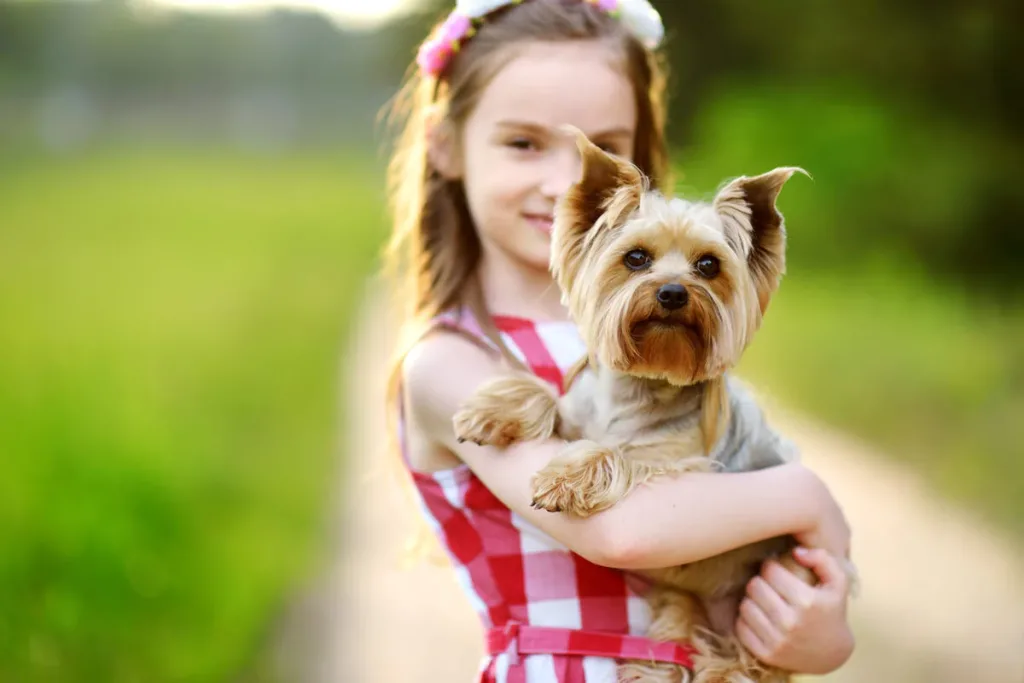
Exercise Needs
Yorkshire Terriers require regular exercise to maintain their physical and mental health. As a small breed, they do not need as much exercise as larger breeds, but they still require daily walks and playtime. A brisk 20-30 minute walk each day is sufficient for most Yorkshire Terriers, but they also enjoy playing fetch or chasing toys in a secure, fenced area. It is important to note that Yorkshire Terriers are prone to obesity, so their exercise routine should be monitored to ensure they are not overexerting themselves or becoming too sedentary.
In addition to physical exercise, Yorkshire Terriers also benefit from mental stimulation. They are intelligent dogs that enjoy learning new tricks and playing interactive games with their owners. Training sessions can be incorporated into their daily exercise routine to provide mental stimulation and strengthen the bond between the dog and owner. Yorkshire Terriers also enjoy socializing with other dogs, so trips to the dog park or playdates with other small dogs can be a fun way to provide both physical and mental exercise.
Suitability for a Multi-Pet Family
Yorkshire Terriers have been known to coexist peacefully with other pets in the household. They are generally friendly and sociable, and can get along well with cats, rabbits, and other dogs. However, it is important to introduce them to other pets slowly and carefully, as they can be territorial and may exhibit aggressive behavior towards unfamiliar animals. Additionally, it is important to supervise interactions between pets to ensure that they are safe and comfortable with each other.
Housing Requirements
Yorkshire Terriers require a comfortable and secure living space that meets their specific needs. They need a warm and dry environment with good ventilation, as they are prone to respiratory problems. The ideal temperature for a Yorkshire Terrier’s living space is between 18-21°C. They also require a soft and comfortable bed to rest on, as they are a small breed and can easily develop joint problems. Additionally, Yorkshire Terriers need access to clean water and food at all times, as they have a high metabolism and need to eat small meals throughout the day.
Yorkshire Terriers are an active breed and require regular exercise to maintain their physical and mental health. They enjoy short walks and playtime in a secure outdoor area. However, they are also well-suited to indoor living and can be exercised through interactive play and training. Yorkshire Terriers are known for their intelligence and enjoy mental stimulation, such as puzzle toys and training sessions. It is important to note that Yorkshire Terriers are a social breed and require regular interaction with their owners to prevent separation anxiety.

Summary
Yorkshire Terriers make great pets for those who are looking for a small and lively companion. They are known for their loyalty and affectionate nature towards their owners. They are also intelligent and easy to train, making them a good choice for first-time dog owners. Yorkshire Terriers are adaptable to different living situations, whether it be in a small apartment or a larger home. They do require regular grooming to maintain their long, silky coat, but their small size makes this task manageable. Overall, Yorkshire Terriers are a popular choice for those seeking a loving and lively pet.
Yorkshire Terrier Dog FAQS
Yorkshire Terriers can be stubborn, but with consistent training and positive reinforcement, they can be trained well.
Yes, Yorkshire Terriers can be good with children if they are socialized properly and trained to interact with them.
Yes, Yorkshire Terriers can be prone to dental problems, hypoglycemia, and luxating patella.
Yorkshire Terriers are small and do not require a lot of exercise, but they still need daily walks and playtime.
No, Yorkshire Terriers have hair instead of fur and shed very little.
Yorkshire Terriers have a lifespan of 12-15 years.
Yorkshire Terriers should be groomed at least once a week to prevent matting and tangling of their hair.
Yorkshire Terriers should have regular check-ups with a veterinarian at least once a year.
The average cost of a Yorkshire Terrier can range from 500-1500 AUD depending on the breeder and location.
The average weight of a Yorkshire Terrier is 3.2 kg.
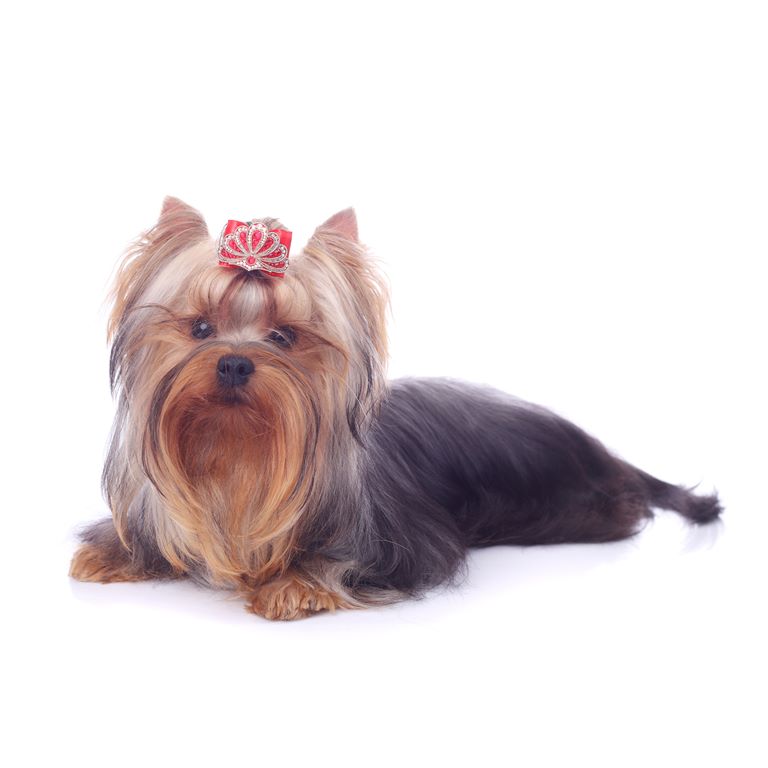
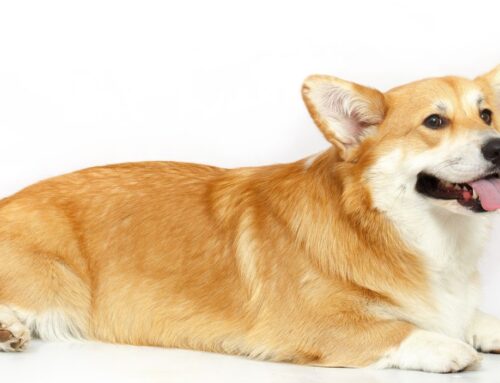
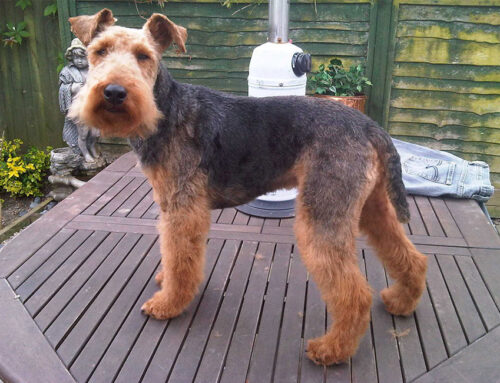
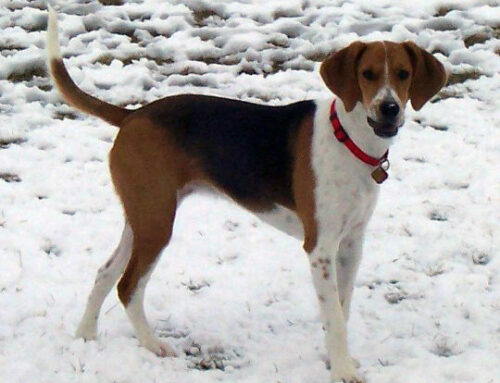
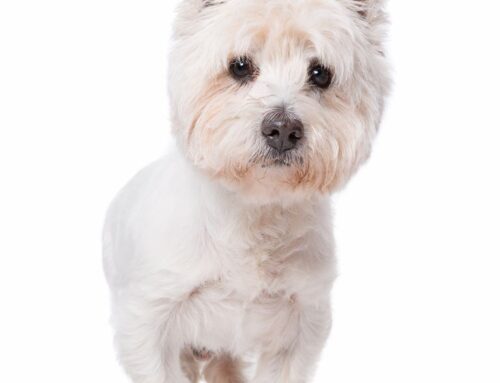
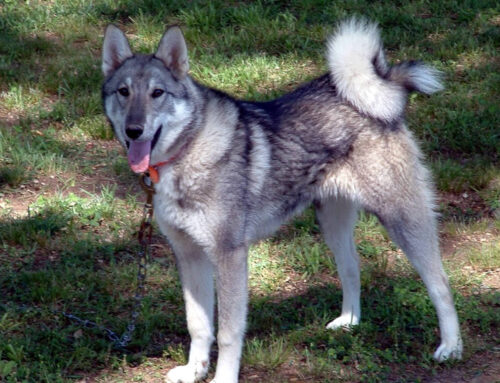
Leave A Comment